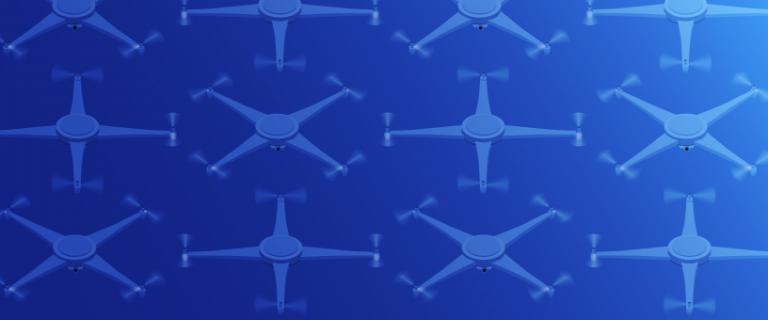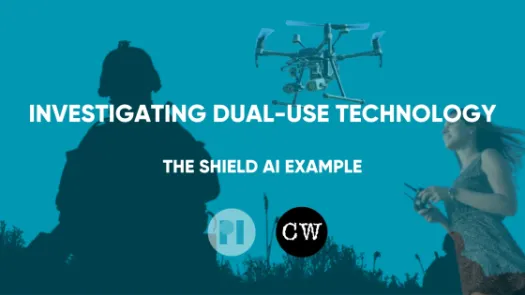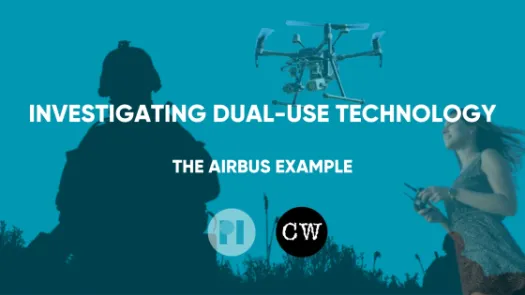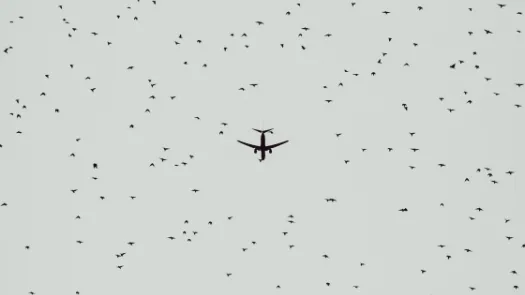Drones, also referred to as unmanned aerial vehicles (UAVs), have rapidly emerged as powerful tools for surveillance across various sectors, including military, law enforcement, and civilian applications.
Drones have been utilised for various purposes, such as to survey agricultural land, and for managing the aftermath of natural disasters. Arguably the most controversial use of drones has been in the military context, for instance the use of drones by the Unites States to kill over 22,000 people in counter-terrorism operations since 9/11. Yet, the use of drones equipped with surveillance equipment has uncontrollably proliferated, including the use of drones to monitor protests or to monitor the Central Mediterranean route often used by irregular migrants.
With their ability to navigate diverse environments and capture real-time data, drones offer unparalleled flexibility in aerial surveillance operations. However, their widespread adoption has raised significant concerns regarding the right to privacy and other human rights, as well as ethical implications of their widespread use.
What is the problem?
The proliferation of drone surveillance poses several challenges. Firstly, drones can conduct surveillance operations with minimal visibility, allowing them to monitor individuals, communities, and sensitive locations without detection. Research has found that this surreptitious monitoring engenders a chilling effect on personal privacy. Individuals alter their behaviour out of fear of constant monitoring and the potential consequences of being under persistent aerial observation, for instance protesters curtailing their freedom of association and movement due to fears surrounding the collection of their identifiable personal data. Whether concealed or apparent, the constant presence of drones overhead has been reported to induce psychological trauma, leading to feelings of anxiety, paranoia, and a diminished sense of security among affected individuals.
Moreover, drones equipped with advanced technologies, such as high-resolution cameras, microphones, and thermal sensors, can capture detailed and sensitive information about individuals’ activities and movements, raising concerns about indiscriminate data collection and potential misuse of surveillance data. The emergence of new drone technology, including those which incorporate Artificial Intelligence (AI) - such as undetectable microdrones, swarm drones which allow multiple drones to communicate and coordinate their efforts, and underground drones which allow for the capture of data below the earth’s surface - means the landscape is ever-changing and that safeguards must exist to prevent misuse of these technologies.
Despite the high risk of harms when using drone technology, there remains a lack of regulation and oversight over the same. Courts are increasingly finding that in the absence of sufficient safeguards, the use of drones is unlawful. Experts are weary of the lack of international protocols around the use of drones to target people across borders, as well as the lack of care around the export of drone technology. The deployment of drones for surveillance by both state and non-state actors poses serious questions about accountability, transparency, and oversight mechanisms to prevent abuses of power and protect fundamental rights.
Why does it matter?
Drones are highly intrusive technologies that require authorisation by law under specific conditions, otherwise their use amounts to a human rights violation. Drone surveillance is not usually directed at a specific person (target surveillance), but to a particular geographical area with a broad outreach (mass surveillance); this means that even people that are not the final targets could be affected by this intrusion. This is neither necessary nor proportionate to the aim pursued as required by human rights standards.
The use of drones limits the ability of people to remain anonymous. Anonymity plays a key role for safe and confidential communications in the planning and holding of protests. Moreover, due to the mobile and concealable nature of drone technology, it is difficult to determine what areas they surveil, when they are active, and why. This creates a fear that people are always under threat of being surveilled. As a result, the unchecked proliferation of drone technology undermines the right to protest.
Both state and private actors have been deploying use of surveillance drones without due consideration to the myriad of impacts they may have. Drone technology is being centered in plans to boost the economy and to gain tactical advantages in war. This has resulted in an abundance of drones equipped with surveillance technology in public and private spaces resulting in widespread and unjustified monitoring of individuals, communities, and entire groups.
This has far-reaching implications for society. At its core, the issue revolves around the balance between security and privacy, as well as the preservation of human rights, rule of law and democratic values in an increasingly surveilled world. The unchecked expansion of drone surveillance threatens to normalise constant monitoring, fostering a culture of suspicion and mistrust. Furthermore, the potential for drones to be weaponised or used for targeted surveillance poses risks to democratic principles and individual freedoms. Addressing these concerns is essential to safeguarding privacy rights, promoting transparency, and upholding democratic values in the digital age.
What PI is doing about it?
We are challenging the drivers of surveillance by creating greater transparency through our research and investigations, raising awareness about the privacy implications of surveillance technology, and ensuring that legislation and practice around drones surveillance is subject to robust controls and safeguards and compliant with international human rights standards.
- We conduct research on the proliferation of drones surveillance, identify the actors involved, and challenge their uses where necessary.
- We communicate to the public on key issues including the use of drones technology in protests.
- We research and challenge the broader issue of proliferation of aerial surveillance.
- We push national and international bodies to listen to peoples’ concerns and take steps to protect people’s privacy. We also contribute to the development of international standards.
- Together with our global network, we advocate and campaign to protect the right to privacy, autonomy, and dignity.




